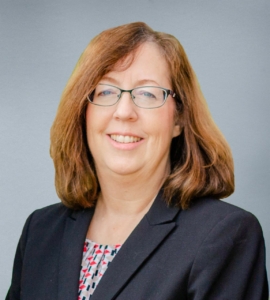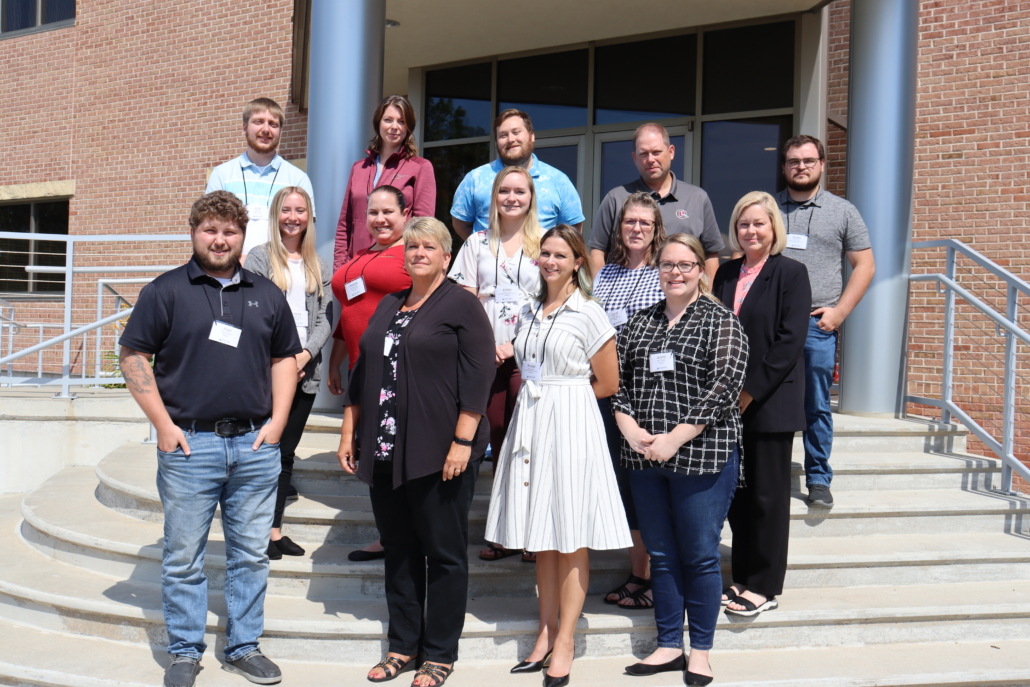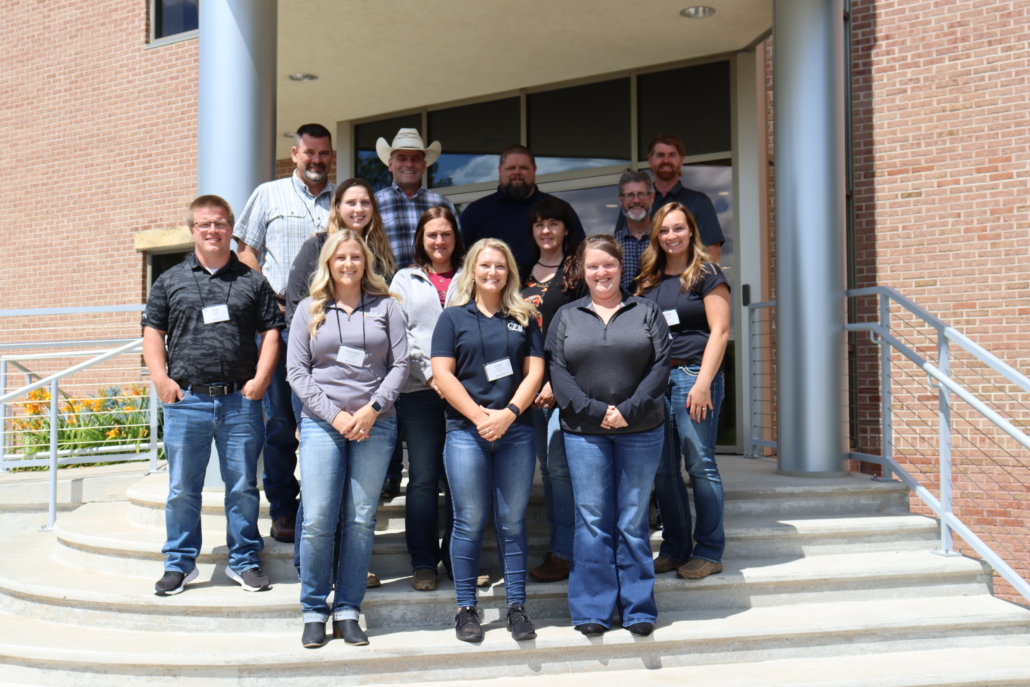Archive for month: August, 2022
 By Rose Oswald Poels
By Rose Oswald Poels
As students around the state head back to school, the importance of ensuring every individual has access to high quality financial education and resources to improve their financial literacy continues to ring true. The Wisconsin Bankers Foundation (WBF) has served since 2015 as the hub for Wisconsin bankers when looking to provide resources, including Reading Raises Interest Kits each spring, to communities across Wisconsin.
As the Foundation continues to grow, we are happy to provide small grants to Wisconsin nonprofit organizations that align with our mission of improving the financial capability of our communities.
WBF recently awarded a second $5,000 grant to Asset Builders, a Wisconsin nonprofit organization, in support of its Finance and Investment Challenge Bowl, a quiz bowl competition geared towards high school students on subjects such as personal finance, economics, business, and marketing. The program aligns with Wisconsin’s statewide learning standards and is an effective strategy to complement what students are learning in the classroom.
The Challenge Bowl serves as an exciting and interactive supplement that educators across the state year after year sign up and accompany students to participate in. As students work in small groups to prove their mastery of finance-related knowledge against their peers, they also have a unique opportunity to interact with local banking and financial services professionals, who serve as quizmasters and competition judges.
For the 2022–2023 school year, the Finance and Investment Challenge Bowl tournament now has 12 regional competitions — reaching students in every corner of the state — and concludes with the state championship in Madison in May. These in-person tournaments are lively and immersive for students and volunteers alike. As the Challenge Bowl continues to expand to reach more students, I highly encourage bankers to volunteer not only to keep this value-adding program as high quality as possible, but as an opportunity to connect the banking industry with hundreds of passionate students. This type of engagement demonstrates our industry’s involvement in these critical efforts to keep our community members financially savvy. If you or any member of your staff is interested in a fun and rewarding service experience, please contact Cassie Krause, WBF’s executive director, or me.
In addition to volunteering for one of the many Finance and Investment Challenge Bowl tournaments across Wisconsin, please also consider making a tax-deductible donation to the Wisconsin Bankers Foundation. Contributions made to the 501(c)3 nonprofit organization support financial education in communities across our state. Thank you for your continued support of not only the Foundation, but of programs such as the Finance and Investment Challenge Bowl that offer engaging educational opportunities to Wisconsinites.
 By Jeff Wilke, Bank First
By Jeff Wilke, Bank First
The 2022 inflationary pressures on a milk producer’s costs to produce milk have made the need to manage milk price risk/volatility that much more important. Two relatively economical and user-friendly milk price risk management tools available to dairy producers are the USDA’s Dairy Margin Coverage (DMC) and Dairy Revenue Protection (DRP) programs.
DMC provides dairy operations with risk management coverage that will pay producers when the difference (the margin) between the national price of milk and the average cost of feed falls below a certain level selected by the program participants. The only cost for $4.00 margin “catastrophic” coverage is a $100 administrative fee. For coverage from the $4.00 margin to $9.50 margin levels (in $.50 increments), there is also a premium payment of only $.0025 to $.15 per hundredweight of milk, respectively, on up to 95% of a producer’s recent average of historical milk production (up to a maximum of five million pounds of milk at those premium costs). Coverage for milk production over five million pounds of milk is available at the $4.50 margin to $9.50 margin levels (in $.50 increments), with premiums from $.0025 to $1.813, respectively. Sign up for the program is through the USDA’s Farm Service Agency.
DRP is designed to insure against unexpected declines in the quarterly revenue from milk sales relative to a guaranteed coverage level (“price protection”). The expected revenue is based on futures prices for milk and dairy commodities, and the amount of covered milk production elected by the dairy producer.
DRP offers two revenue pricing options: The Class Pricing Option, which uses a combination of Class III (milk primarily used for cheese production) and Class IV (milk primarily used for butter and non-fat dry milk production) milk prices as a basis for determining coverage and indemnities. The Component Pricing Option, which uses the component milk prices for butterfat, protein and other solids as a basis for determining coverage and indemnities. Under this option the producer may select the butterfat test percentage and protein test percentage to establish their insured milk price.
Through DRP, 80-95% of expected quarterly milk revenue may be covered (in 5% increments). A premium subsidy of 44-55% is provided through the program, depending on the coverage level selected. DRP insurance is available through authorized crop insurance agents.
For more information on the DMC and DRP programs, visit usda.gov.
Jeff Wilke is vice president-business and ag banker with Bank First in Denmark. Wilke currently serves on the WBA Ag Section Board of Directors.
 By Rose Oswald Poels
By Rose Oswald Poels
Every fall, I travel to Washington D.C. with a small group of bankers to visit regulators. During this trip, we nearly always meet with staff from Consumer Financial Protection Bureau (CFPB).
Since CFPB’s inception, we inevitably encourage the CFPB staff during each of these annual visits to focus more on the non-bank financial organizations that operate in the traditional “banking” space. Nearly every time we have this conversation, they nod and share that they provide this type of supervision typically through a complaint-based system. This means that if enough consumers complain about a particular financial organization (not a regulated bank), they will investigate and take whatever action they deem appropriate. Certainly, this has been incredibly frustrating for bankers to hear over the years given that many non-bank actors contributed to the causes of the Great Recession back in 2008 and 2009 and CFPB’s mission is that of protecting consumers. It has been too easy for CFPB to focus on the banking industry through their rulemaking and enforcement authorities since banks are easier to find with traditional brick-and-mortar offices.
I was pleasantly surprised to learn recently, however, that the CFPB has focused some of its attention on the non-bank financial industry by assessing fines to fintech companies for actions that have ultimately harmed consumers. Specifically, CFPB recently levied a $2.7 million fine against lender Hello Digit for a range of issues including misleading marketing claims such as “no overdraft fees.” This claim of no overdraft fees was one of several promises made to consumers by Hello Digit that were, in fact, not always true. Other fintechs have made similar claims regarding no overdraft fees as well, including digital lender Chime, that have turned out to be misleading or only true in a limited set of circumstances.
At the same time, the FDIC recently issued cease and desist orders against five crypto firms for making false or misleading statements suggesting that their digital assets were FDIC-insured. According to the FDIC, each of these companies made false representations on their website and social media accounts stating or suggesting that certain crypto-related products are FDIC-insured or that stocks held in brokerage accounts are FDIC-insured. As we all know, these representations are false and misleading.
There are many fintechs that are working to do the right thing and help improve the financial industry through technological efficiencies, but some reasonable level of regulation and oversight is important for these institutions just like banks. These recent regulatory actions against non-bank financial organizations are good reminders that it is important to continue sharing our concerns with regulatory agencies related to non-bank actors and to continue to stress to our clients and the public how trustworthy banks are.
If you are interested in accompanying me on a future fall regulatory agency trip to D.C., please let me know and I will add you to the list. I try to keep the group small, limited to 12 bankers, to ensure meaningful dialogue with the regulatory agencies. Bankers who have joined me in the past have found this trip to be worthwhile given much of our frustration and burden comes from regulation. In the meantime, WBA will continue to advocate for the members on these and other issues affecting the industry.
Congratulations to the 19 bankers who recently completed the 2022 Deposit Compliance School held August 22 and 23 at the WBA headquarters in Madison and via livestream! WBA’s Deposit Compliance School is designed to give Wisconsin bankers a strong foundation of the various deposit regulations that affect banks.
- Aubrie Bobholz, Horicon Bank
- Lu Ann Bowman, Mound City Bank, Platteville
- Laura Enders, Bank of Sun Prairie
- Carol Green, First Community Bank, Milton
- Nicole Havel, Dairy State Bank, Rice Lake
- Andy Hayes, Capitol Bank, Madison
- Kelsey Herold, First Citizens State Bank-Whitewater, Whitewater
- Austin Hines, River Falls State Bank, River Falls
- Hailey Klaas, Peoples State Bank, Lancaster
- Marty MacEacher, Peoples State Bank, Prairie du Chien
- Amanda Markell, Bank of Sun Prairie, Sun Prairie
- Brett Miller, Capitol Bank, Madison
- Brooke Noboa, First Federal Bank of Wisconsin, Waukesha
- Brad Olsen, WoodTrust Bank, Wisconsin Rapids
- Hunter Olson, American Bank of Beaver Dam, Beaver Dam
- Nicole Ramirez, Woodford State Bank, Monroe
- Deanna Van Acker, Johnson Financial Group, Racine
- Brian Vogeltanz, Bank of Luxemburg, Luxemburg
- Evan Whitehead, Settlers bank, Appleton

This school is geared toward bank retail staff, including head tellers, personal bankers, universal bankers and managers, as well as compliance officers, operations personnel, and bank legal counsel. WBA Director – Legal Scott Birrenkott, FIPCO Compliance & Risk Management Advisor Michelle Haslam, and compliance consultant Laureen Lehnberg served as faculty for this year’s Deposit Compliance School.
 By Rose Oswald Poels
By Rose Oswald Poels
At the heart of the Wisconsin Bankers Association’s (WBA) mission is advocating on behalf of the Wisconsin’s banking industry. In the last year alone, WBA has taken action in combating credit card fees, increasing instances of elder fraud in our communities, legislation that would expand credit union powers, a looming recession, and so much more.
It’s no secret that WBA-member banks play a significant role in the support of our Association. Between political contributions that help further engage our legislators or by participating in Capitol Day, organizing a “Take Your Legislator to Work Day”, or testifying on a bill — the engagement shown by our membership has been paramount in advancing WBA’s efforts over the last 130 years.
I am also lucky to say that, in addition to the thousands of bankers throughout the state who engage with WBA, our Association is also made up of nearly 50 individuals who, like you, are sincerely dedicated to our state’s banking industry.
Earlier this month, WBA hosted its annual staff fundraiser in support of Wisbankpac and Alliance of Bankers for Wisconsin (ABW) — two critical methods of promoting advocacy for the Wisconsin banking industry. This timely event, in which the funds raised are used to help support pro-banking political candidates, welcomed staff donations (though participation was not required) by way of a specified contribution from payroll, a check made out to one of the funds, or the purchase of one or more Jeans Day stickers for a casual dress day at the office. All money raised directly aids in WBA’s advocacy efforts.
For their generosity, and to celebrate Wisconsin’s beloved county fair season, WBA hosted a fair-themed week of events. Ranging from a blue ribbon bake off to games and a cornhole competition, every staff person was able to participate in activities and win prizes.
I am proud to announce that our small but mighty staff was collectively able to crush our goal of $7,000 and raise over $12,350 this year. This amazing feat by our team highlights the commitment each WBA staff member has to the industry and our membership.
As we look ahead to the remainder of this calendar year, it is critical that all WBA-member banks continue to engage with our Government Relations team and take part in supporting our industry. In addition to making political contributions, banks should take a moment to ensure they remain on track to receive WBA’s Gold Triangle or Bankers Involved in Grassroots and Government (BIGG) Award.
The Gold Triangle Club, the highest level of fundraising recognition for banks, is awarded annually through contributions to ABW political conduit, Wisbankpac, or WBA’s issue advocacy fund. Corporate contributions as well as contributions from bank employees and directors count toward Gold Triangle status, and the amount to qualify ranges from $500 to $4,500 based on the size of the bank.
WBA’s BIGG Award expands beyond Gold Triangle fundraising to encompass grassroots advocacy engagement and serves as the Association’s highest level of recognition for overall advocacy. To learn more about how your bank can earn these prestigious awards, please contact Lorenzo Cruz, vice president – government relations, or me.
As I’ve stated in previous publications, the support and involvement of every member bank is critical to the continued success of our advocacy efforts. With the goal of raising $300,000 by the end of this year, it truly requires a team effort to keep our Association on target to continue surpassing our goals for the industry!
WBA’s Secur-I.T. & BSA/AML Conference returns in 2022
As cybersecurity and fraud continue to be rising topics of discussion throughout the banking industry, bankers are encouraged to stay informed on the latest trends experts are seeing and how regulations will continue to impact Wisconsin banks by attending WBA’s annual Secur-I.T. & BSA/AML Conference held in Wisconsin Dells.
The two-day conference — beginning September 20 and adjourning at noon on September 21 — draws over 125 BSA/AML, operations, security, and technology professionals from around the state for over seven hours of educational presentations and networking.
This year’s keynote session will feature Bryan Seely, a world-famous cyber security expert, ethical hacker, author, and former U.S. Marine. Seely became one of the most famous hackers in 2014 when he became the only person to ever wiretap the United States Secret Service and FBI. Before he was caught, he confessed to the two agencies that there was an issue that needed to
be fixed.
Unlike many hackers, Seely is passionate about fighting for consumers rights, privacy, and educating the public about how to stay safe in a constantly changing technological landscape. In this keynote session, Seely will highlight the different ways in which hackers think and the new, creative ways professionals must approach security in order to protect the most critical information of the business and customers.
In addition to this captivating keynote speaker, the Secur-I.T. & BSA/ AML Conference offers several breakout sessions and networking opportunities that will assist banking professionals from throughout Wisconsin in further developing their bank’s customer experiences, BSA/ AML program, security, and technology capabilities as the banking and technology industries continue to evolve.
Cryptocurrency is currently an unregulated, speculative investment
By Hannah Flanders
With the increasing rise in popularity of cryptocurrency throughout the U.S., it is no question that banks and regulators alike aim to understand this unique form of encrypted exchange while also helping to protect the millions of individuals who have already invested in, traded, or used digital assets.
In May, crypto investors experienced the most severe price crash the global crypto market has ever seen. As inflation rises and individuals continue to draw what money they have left out of the market, prices continue to drop each day.
Cryptocurrency is a speculative investment for both banks and individuals engaging with it, and currently, there are no specific regulations tailored to it. As the market this last year has shown, although the market experiences rapid unpredictability and growing connections to money laundering activity, consumers and business alike continue to be interested in the potential benefits of this transferable wealth.
In this, many regulators are attempting to harness the security of financial institutions that are entering into the untamed landscape. As agencies — including the Securities and Exchange Commission (SEC) and Commodity Futures Trading Commission (CFTC) — jockey to assert regulatory authority and supervision over digital assets, it is important for banks and their counsel to consider that no regulations have been established regarding bank involvement with digital assets.
In March 2022, President Joe Biden issued an Executive Order regarding the need to establish consumer/investor protection and focus on financial stability, inclusion, and preventing against illicit activity within the American crypto market. Of this came an increase in guidance issued by several national agencies.
Guidance by the Federal Deposit Insurance Corporation (FDIC) states that all FDIC-supervised institutions that intend to engage in, or that are currently engaged in, any activities involving or related to digital assets should notify the FDIC. This action aims to provide supervisory feedback in the wake of activities that pose significant safety and soundness risks as well as financial stability concerns to banks. Additionally, the Office of the Comptroller of the Currency (OCC) advises that banks should not engage in cryptocurrency until they have notified their supervisory office and received a non-objection form.
The Financial Crimes Enforcement Network (FinCEN) has also issued several advisories to banks regarding illicit activity involving cryptocurrency. Banks should demonstrate compliance with their anti-money laundering (AML) programs and be aware of the prevalence of unregistered entities without sufficient AML controls. As with every new relationship, banks are advised to also consider the Bank Secrecy Act of 1970 (BSA) when engaging with digital assets.
In addition to guidance from federal agencies, banks should also be aware that state agencies and legislators may also begin acting on Biden’s order. In this, more proposed legislation to encourage innovation in the financial sector while also enforcing consumer protections may begin appearing at both the state and federal levels.
Currently, only one legislative act has been proposed at the federal level by U.S. Senators Kirsten Gillibrand (D-N.Y.) and Cynthia Lummis (R-Wyo.). If enacted, the Responsible Financial Innovation Act (RFI) would establish regulatory framework for digital assets by providing industry and regulator clarity, clarifying standards, establishing jurisdictional boundaries, and protecting consumers.
At the state level, Wisconsin’s Department of Financial Institutions (DFI) and Department of Agriculture, Trade, and Consumer Protection (DATCP) have cautioned Wisconsin banks and consumers of the risks of crypto. While no legislation has yet to be proposed or passed, Wisconsin bankers should expect that — like many other states — state regulation may be forthcoming.
For questions on legal developments or regulations related to crypto or other compliance matters, please reach out to WBA legal at 608-441-1200.
*Update from originally published article: On Tuesday, August 16, guidance was issued for Federal Reserve System (FRB)-supervised banking organizations engaged in or seeking to engage in crypto-asset-related activities. The guidance includes the instruction that a banking organization need notify its lead FRB supervisory point of contact regarding such activities.
- Cassandra Baeten, Ag Portfolio Manager, Bank of Luxemburg
- Cody Belken, Credit Analyst, Royal Bank, Dickeyville
- Riley Carson, Ag Loan Officer, Community Bank, Vernon Center
- Hope Francis, Credit Analyst, Community First Bank, Platteville
- Chris Greenwood, Branch Manager, Waumandee State Bank, Arcadia
- Heather Hafften, Ag Loan Officer, Peoples State Bank, Dickeyville
- Marissa Hanley, Agricultural Credit Analyst, Nicolet National Bank, Seymour
- Mara Hird, Residential Relationship Manager – AVP, Peoples State Bank, Wauzeka
- Jamie Horsfall, Agricultural Relationship Manager, Peoples State Bank, Fennimore
- Rayanne Walker, Agricultural Credit Analyst, Nicolet National Bank, Eau Claire
- Amy Bloczynski, AVP/Branch Manager, Waumandee State Bank, Black River Falls

(Left to right) Cody Belken, Jamie Horsfall , Cassandra Baeten, Rayanne Walker, Brad Guse, Mara Hird, Hope Francis, Chris Greenwood, Amy Bloczynski, Marissa Hanley, Kevin Bernhardt, Riley Carson, and Heather Hafften









